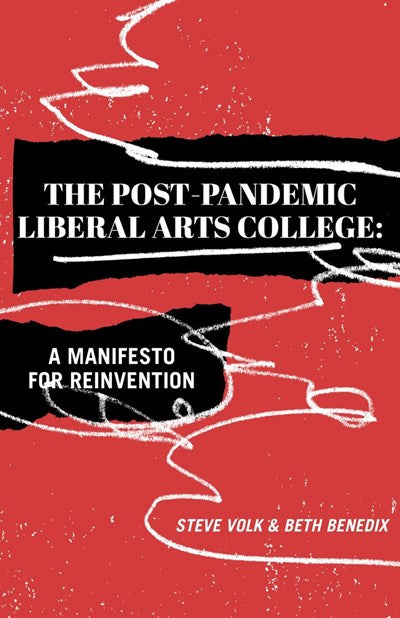A vision for higher education after COVID-19
A succinct and impassioned call to reimagine the small liberal arts college, by two veteran educators.
Private liberal arts colleges have struggled for decades; now, as the COVID-19 pandemic widens cracks latent in many American institutions, they are facing a possibly mortal crisis. In The Post-Pandemic Liberal Arts College: A Manifesto for Reinvention, Steven Volk and Beth Benedix call for small colleges to seize this moment and reinvent themselves. With the rise of rankings that set peer institutions against each other, tuition that outpaces income, creeping pre-professionalism, and a race to build student “customers” the splashiest new amenities, many private liberal arts colleges have strayed from their founders’ missions. If they could shed the mantle of exclusivity, reduce costs, facilitate true social mobility, and collaborate with each other, the authors argue, they might both survive and again become just, equitable, accessible institutions able to offer the transformative and visionary education that is their hallmark.
Educators, students, parents, and anyone invested in the future of higher ed should read this book.
From two veteran educators, Steven Volk and Beth Benedix, a succinct and impassioned call to reimagine the small liberal arts college after COVID-19.
Private liberal arts colleges have struggled for decades. Now, after the COVID-19 pandemic has exposed the weaknesses in many American institutions, they are possibly facing a mortal crisis.
In The Post-Pandemic Liberal Arts College: A Manifesto for Reinvention, Volk and Benedix call for small colleges to seize this moment as an opportunity for renewal. With the rise of rankings that set peer institutions against each other, skyrocketing tuition, creeping preprofessional programs, and a race to build the splashiest new amenities for student “customers,” many private liberal arts colleges have strayed from their founders’ original missions. If they could shed the mantle of exclusivity, reduce costs, facilitate true social mobility, and collaborate with one other, the authors argue, they might both survive and again become just, equitable institutions that are able to transform their students’ lives.
A slim, accessible book for educators, students, parents, and anyone else who’s invested in the future of higher education.

